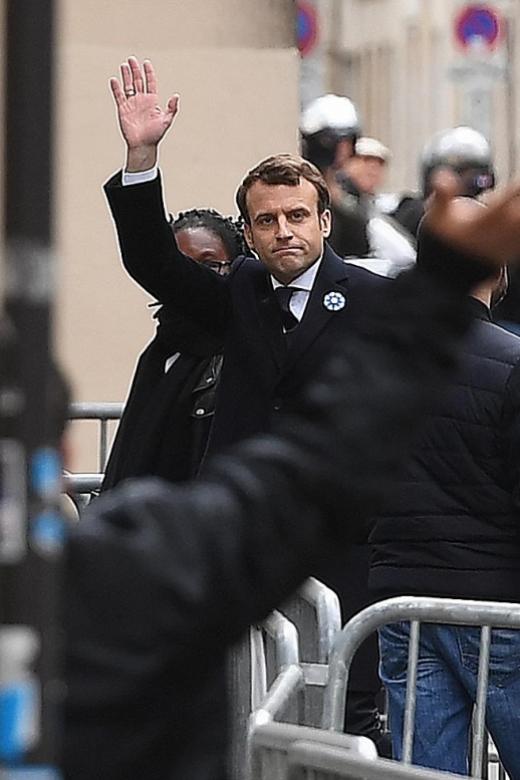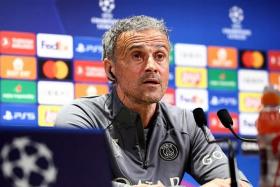French president-elect Macron faces some daunting challenges
Pro-European centrist sweeps to victory in French presidential election
PARIS: Mr Emmanuel Macron was elected French president on Sunday with a business-friendly vision of European integration, defeating Ms Marine Le Pen, a far-right nationalist who threatened to take France out of the European Union.
Mr Macron had topped 66 per cent against just under 34 per cent for Ms Le Pen - a gap wider than the 20 or so percentage points that pre-election surveys had suggested.
Even so, it was a record performance for the National Front, a party whose anti-immigrant policies once made it a pariah, and underlined the divisions in France.
Here are some of the main challenges facing Mr Macron:
REUNITE FRANCE
The pro-European centrist and former banker takes over a divided country where nearly half of voters backed extremist candidates - critical of the EU, globalisation and "elites" - in the first round of the election.
The "two Frances" are divided geographically - one urban, more affluent and open to reform; the other, concentrated in the northern rustbelt and in disadvantaged areas of the countryside. It was this latter France that voted for Mr Macron's opponent, Ms Marine Le Pen.
Mr Macron knows that many voters backed him not out of conviction but simply to stop Ms Le Pen taking power, and his support could evaporate at the parliamentary elections.
THE IMPOSSIBLE MAJORITY?
Mr Macron has promised to create a new majority in the centre.
He launched his En Marche! (On the Move) party less than a year ago but managed to attract hundreds of thousands of supporters.
He finished first in the first round of the election with a quarter of the vote. In the run-off against Ms Le Pen, he got almost two-thirds of the vote, according to exit polls.
Now he must convert his extraordinary rise into a solid presence in the National Assembly.
Mr Macron believes the French people will give him another victory in parliamentary elections, which will take place on June 11 and 18.
But the traditional centre-right, whose candidate Francois Fillon crashed out in the first round amid a fake jobs scandal, hopes to strike back and force Mr Macron into a coalition arrangement in parliament.
The far left, emboldened by the first-round success of candidate Jean-Luc Melenchon, who took an unexpectedly high 19.6 per cent, is also aiming for a strong showing.
LABOUR LAW BATTLE
French joblessness runs at 10 per cent, which compares with an average of 8 per cent across the EU and just 3.9 per cent in Germany.
Like his predecessors, Mr Macron will be judged above all on employment, and he has vowed to force through reform of France's hidebound labour laws using executive orders in his first months in office.
This accelerated procedure, bypassing parliament, could mean a fiery start to his term as France's highly activist unions would likely bring protests out onto the streets, as they did last year when Socialist Prime Minister Manuel Valls used the tactic.
Mr Macron wants to cut unemployment to 7 per cent by 2022 by liberalising employment laws, cutting business tax rates and loosening restrictions in France's 35-hour working week.
EU REFORM
Mr Macron sees a reinvigoration of the France-Germany alliance as crucial to relaunching the EU after the shocks of Brexit and the migrant crisis.
He plans to tour European capitals during his first months in charge to set out a "five-year roadmap to give the eurozone a true budget and to create a Europe of 27 for the environment, industry and managing migration". - AFP
Get The New Paper on your phone with the free TNP app. Download from the Apple App Store or Google Play Store now



